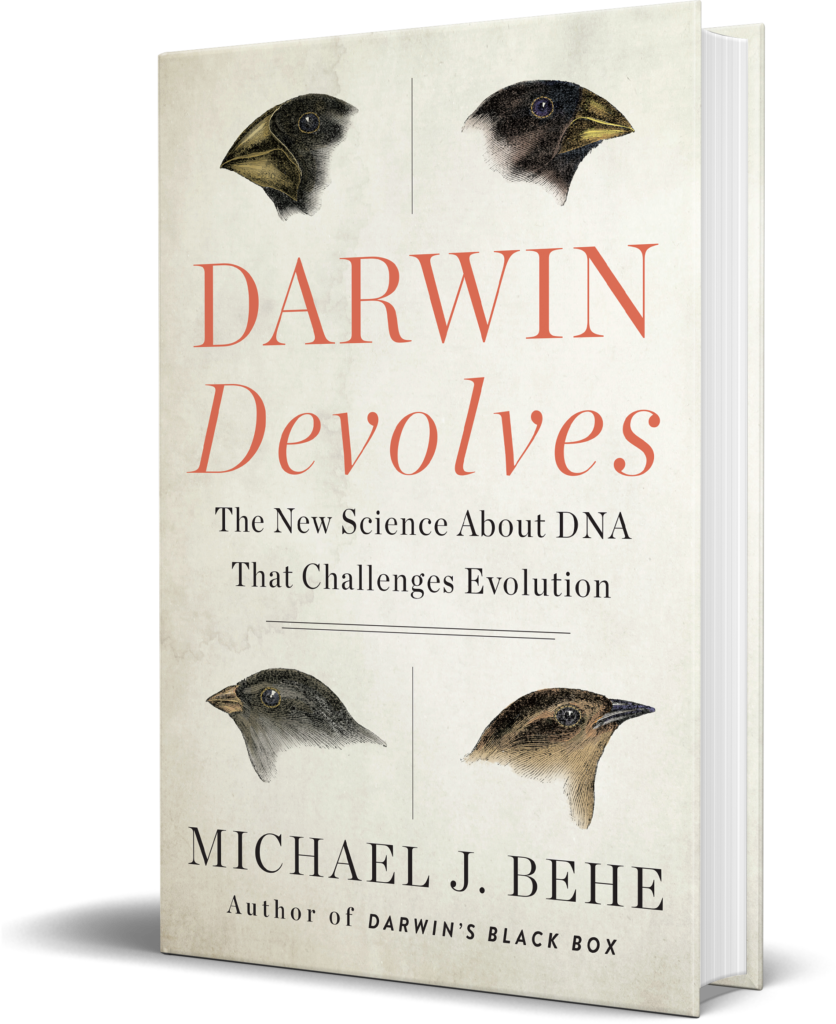
Some of Michael Behe’s colleagues wrote a critical review of his book Darwin Devolves here:
By reviewing Behe’s latest book, we run the risk of drawing attention—or worse, giving credibility—to his ideas. Books like Darwin Devolves, however, must be openly challenged and refuted, even if it risks giving publicity to misbegotten views. Science benefits from public support. Largely funded by federal grants, scientists have a moral responsibility (if not a financial obligation) to ensure that the core concepts of our respective fields are communicated effectively and accurately to the public and to our trainees. This is particularly important in evolutionary biology, where—over 150 years after On the Origin of Species—less than 20% of Americans accept that humans evolved by natural and unguided processes (Gallup 2014). It is hard to think of any other discipline where mainstream acceptance of its core paradigm is more at odds with the scientific consensus.
Why evolution by natural selection is difficult for so many to accept is beyond the scope of this review; however, it is not for a lack of evidence: the data (only some of which we present here) are more than sufficient to convince any open minded skeptic that unguided evolution is capable of generating complex systems. A combination of social and historical factors creates a welcoming environment for an academic voice that questions the scientific consensus. Darwin Devolves was designed to fit this niche. Gregory I. Lang Amber M. Rice, “Evolution unscathed: Darwin Devolves argues on weak reasoning that unguided evolution is a destructive force, incapable of innovation” at Evolution
and Behe has responded as follows:
They begin with logical error #1 by deriding the First Rule of Adaptive Evolution as a “quality sound bite” that is “simplistic and untruthful to the data.” Recall that the First Rule states, “Break or blunt any functional gene whose loss would increase the number of a species’ offspring.” Also recall that I explained, in both the book and the journal article where it was first published, that it is called a “rule” in the sense of being a rule of thumb, not an unbreakable law, and it is called the “first” rule because that is what we should generally expect to happen first to help a species adapt, simply because there are many more ways to break a gene than to build a new constructive feature.
As you might imagine, I have read the Evolution review closely. Yet nowhere do the authors even try to show why the First Rule isn’t a correct statement. They point to mutations that are not degradative, but fail to show quantitatively that those other types will arise faster than degradative ones. In fact, the other types are expected to be orders of magnitude slower.
The reviewers agree that the First Rule is fine for explaining many results from the experimental evolution of microbes such as bacteria and yeast, but they balk at extending it beyond the lab. In fact, they actively argue that lab results really can’t tell us much about the real world: “No deletion is beneficial in all environments and beneficial loss of function mutations that arise in experimental evolution are unlikely to succeed if, say, cells are required to mate , the static environment is disturbed, or glucose is temporarily depleted.” All of those situations, of course, will be common outside a laboratory.Michael Behe, “A Response to My Lehigh Colleagues, Part 1” at Evolution News and Science Today:
If Behe’s critics were right, new life forms would be popping into existence all the time. But increasingly, political correctness matters so much more than truth to nature that we will be hearing stranger things yet about the Darwinian magic they espouse.
Follow UD News at Twitter!
See also: Michael Behe: How To Tell If Scientists Are Bluffing